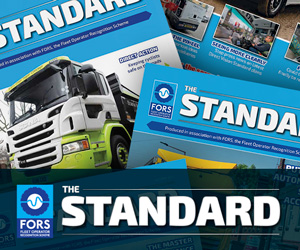
By Jane Woodcock, head of personal injury at Hudgell Solicitors
EVERY road user knows all about the cold Winter weather and how it can cause difficult driving conditions.
So, you’ll probably be surprised to learn that February is actually the safest month of the year on UK roads.
Despite having to negotiate poor visibility and icy patches, you’re less likely to have an accident during winter than you are in summer.
A total of 1,544 serious and fatal collisions occurred in February and 1,578 in January – compared to 2,330 in July and 2,148 in August, according research conducted by road safety company Smart Witness.
This sharp rise is due to a greater number of motorists being on the road during the traditional Summer holiday period.
Safest months of year on UK roads*
1. February 1,544
2. January 1,578
3. March 1,590
4. April 1,756
5. December 1,959
6. June 2,048
7. May 2,069
8. November 2,111
9. September 2,112
10. October 2,125
11. August 2,148
12. July 2,330
*Number of fatalities and serious injuries in 2017
Always be fully prepared for the worst
Despite being the ‘safest’ month of the year to be on the road, driving in snow and ice is daunting – and you should never get complacent!
For HGV and commercial vehicle drivers, it’s important to be prepared for every eventuality.
A few simple steps should help you avoid slipping and sliding in freezing temperatures.
· Make sure you use ‘winter’ weight and fuel
· Check your tyres’ tread, condition and pressure
· Stock up on de-icer and anti-freeze
In my role as an experienced personal injury lawyer, I have to deal with the aftermath of serious road and workplace accidents. It may sound overly cautious, but I strongly recommend that all commercial drivers travel with a pre-prepared survival kit.
Should you become stuck or stranded, having the right essential equipment can quickly turn your cab into a mini survival space – giving you peace of mind if the weather does turn.
Winter driving survival kit
· Strong sacking – put under wheels to improve traction
· Warm clothes and a thick blanket
· Mobile phone charger
· Torch and batteries
· Food and water
· A shovel
Hopefully, you’ll never need to rely on a survival kit to ensure your safety. But most drivers would rather prepare for the worst-case scenario than get caught out when it happens.
If the conditions you’re driving in do ever make you feel genuinely uncomfortable, stay safe and stop driving.
No-one wants to let their customers down (or feel the wrath of their boss!), but your safety and that of other road users should always be the number one priority.




